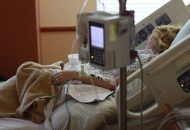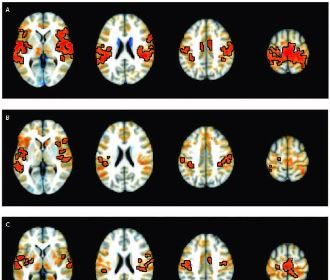Eating Within Consistent 10-Hour Window Reduces Risk of Chronic Diseases

Researchers from the UC San Diego School of Medicine and Salk Institute conducted a review of time-restricted eating that shows eating within an 8-10-hour window can reduce the risk of chronic diseases, such as diabetes and heart disease.
“Just like to be productive we plan our day and stick to the plan, when these internal timetables of genetic functions are carried out at the right time, we stay healthy and recover faster from diseases,” said Satchidananda Panda, co-corresponding author and professor in Salk’s Regulatory Biology Laboratory.
The study finds that time-restricted eating can support an individual’s circadian rhythms and maximize health benefits as the consistency of the 10-hour window allows an alignment with the internal clock of the body.
Panda’s 2019 pilot study provided evidence that time-restricted food intake could provide health benefits for patients with metabolic syndrome, and lead to a healthier metabolism.
His prior research included 19 participants, consisting of 13 men and six women, with metabolic syndrome, with 85% taking at least one medication.
By using an app called myCircadianClock, created by Panda’s lab, participants logged their caloric intake, weight, blood pressure, and other metrics that allowed researchers to understand what their biological rhythms said about their health.
A two-week observation period was conducted to have a baseline reference for the study, followed by a three-month, 10 hour-time restricted eating intervention.
Participants chose to begin their 10-hour eating window between 8 a.m. and 10 a.m. and end the eating window between 6 p.m. and 8 p.m. According to the study, the participants achieved this by delaying the time of the first calorie and advancing their last calorie.
“Timed-restricted eating has a consistent eating window of the same time every day, so the body can anticipate when to expect food and prepare physiology responses accordingly. Intermittent fasting only takes fasting duration into account, but not the regularity in time of day. Time-restricted eating does not require any caloric restriction, whereas intermittent fasting almost always does,” said Emily Manoogian, a co-author of the study, and chronobiologist and clinical researcher at The Salk Institute for Biological Studies.
“Almost everything in your body has a 24-hour rhythm. This includes hormone release, gene expression, glucose regulation, heart rate, blood pressure, body temperature, etc. The circadian system keeps all of these things happening at the right time, so your body works together. Eating at the same time of day allows processes like this to be optimized,” said Manoogian.
Even for those with a busy schedule, time-restricted eating within an 8-10 hour eating window has not been found to cause mental or physical adverse effects, and in fact, Manoogian said that it has helped to improve an individual’s view of their own health, improve sleep, and increase energy levels.
However, Manoogian said that time-restricted eating may not be recommended for individuals with Type 1 diabetes, or minors and women who are breastfeeding or pregnant.
“Time-restricted eating seems to help optimize physiology as a whole, so it tends to help with any chronic condition. It is now being used in studies to assess benefits for other diseases, such as cancer,” said Manoogian.
“When you eat is another pillar of a healthy diet, the same way that what and how much you eat are. I think the first step is to identify your eating patterns, and then you can modify it to get to a schedule that you can maintain,” said Manoogian.

























